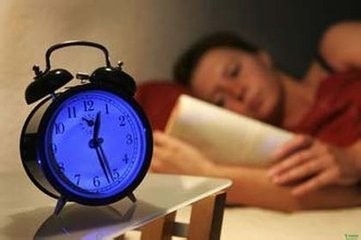(单词翻译:单击)
听力文本
This is Scientific American — 60-Second Science. I'm Christopher Intagliata.
Standing in line at passport control isn't the most relaxing experience. The officer looks at your passport... at you... back at your passport... back at you. Kind of nerve wracking. But put yourself in their shoes for a second. They're trying to figure out if your face is actually the same one as that little thumbnail image on the page. Not the easiest task.
"People are often surprised at how poor they are." David White, a cognitive psychologist at the University of New South Wales in Australia. He's even tested Australian passport agents at the task. "Their performance was no better than a group of untrained university students."
In his latest study, White and his colleagues investigated how poor sleep—less than six and a half hours a night—might affect facial recognition. Turns out, bad sleep did lead to more wrong answers on a face-matching task. And study subjects suffering from insomnia, meaning poor sleep plus other symptoms like anxiety, scored badly, too, compared to well-rested subjects.

But here's the twist: "When they made errors, people in this insomnia group, they actually had higher levels of confidence." They were more sure of their wrong answers. The results are in Royal Society Open Science.
To avoid these kinds of errors, White suggests security organizations pay more attention to which employees may be sleeping poorly. "That's more a sort of everyday occurrence, certainly for new parents or people that may have their sleep disrupted by shift work, which is very common in these security and forensic settings." And that they screen staffers for signs of insomnia, and consider assigning those officers to different jobs, that don't involve scrutinizing faces all day. Precautions that may help the rest of us sleep a little easier, too.
Thanks for listening for Scientific American — 60-Second Science Science. I'm Christopher Intagliata.
参考译文
这里是科学美国人——60秒科学。我是克里斯托弗·因塔利亚塔。
在护照检查处排队并不是一件轻松的事情。官员会先看一下你的护照,然后看一下你,然后再看看你的护照,然后再看看你。这有些令人紧张不安。但是,从他们的立场想一下。他们在试图判断你和护照上那个小照片里的人是不是同一个人。这可不是一件容易的事情。
“人们经常会对这些护照检查官员如此差的辨别能力感到惊讶。”大卫·怀特是澳大利亚新南威尔士大学的认知心理学家。他甚至在任务中对澳大利亚护照办理人员进行了测试。“这些官员和那些没有经过训练的大学生的表现差不多。”
在怀特的最新研究中,他和同事对睡眠不足进行了调查,他们研究了每晚睡眠少于六个半小时对面部识别可能产生的影响。结果表明,睡眠质量差会导致在人脸匹配任务上的错误增多。研究对象包括失眠患者,即睡眠质量差而且出现焦虑等症状的人,结果表明,同休息充分的研究对象相比,这些人的得分也很低。
但是,令人纠结的事情出现了:“失眠组的人虽然犯了错误,但他们拥有更强的信心。”他们对自己的错误答案深信不疑。该研究结果发表在《皇家学会开放科学》期刊上。
为了避免这类错误,怀特建议安全机构多关注那些睡眠质量差的员工。“睡眠不好几乎每天都在发生,特别是新手父母以及由于轮班而影响睡眠的人们,缺乏睡眠在安全及法医机构非常常见。”应观察员工的失眠迹象,然后分配给他们不同的工作,让他们不用整天识别人脸。另外,采取预防措施也可以让我们更容易入睡。
谢谢大家收听科学美国人——60秒科学。我是克里斯托弗·因塔利亚塔。
译文为可可英语翻译,未经授权请勿转载!
重点讲解
重点讲解:
1. figure out 想出;理解;弄清;
例句:I can not figure out why they ridicule this constructive suggestion.
我弄不懂他们为什麽嘲笑这一建设性建议。
2. turn out 原来是;结果发现;
例句:Julie has turned out to be the best student in our class.
结果证明朱莉是我们班上最棒的学生。
3. be sure of 一定的;必定的;无疑的;确保的;
例句:He was sure of Jack's innocence.
他确信杰克是无辜的。
4. pay attention to 关心;注意;
例句:Everyone should pay attention to preserving his own eyesight.
每人都应注意保护视力。


